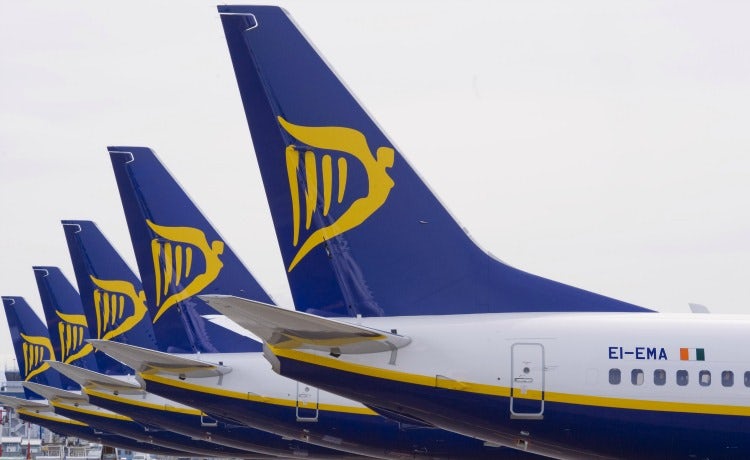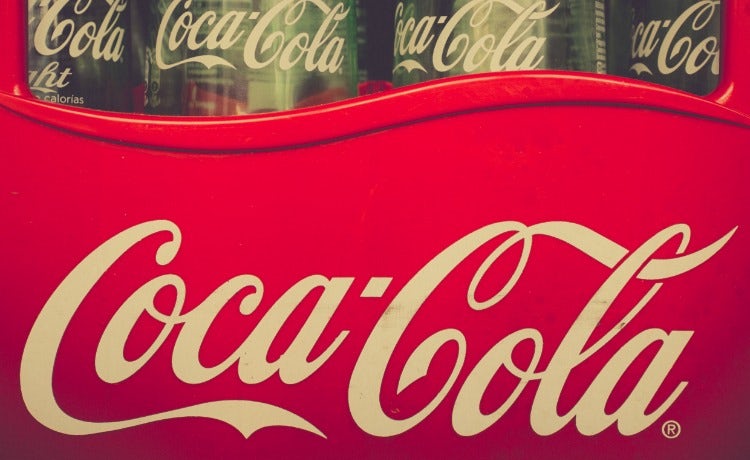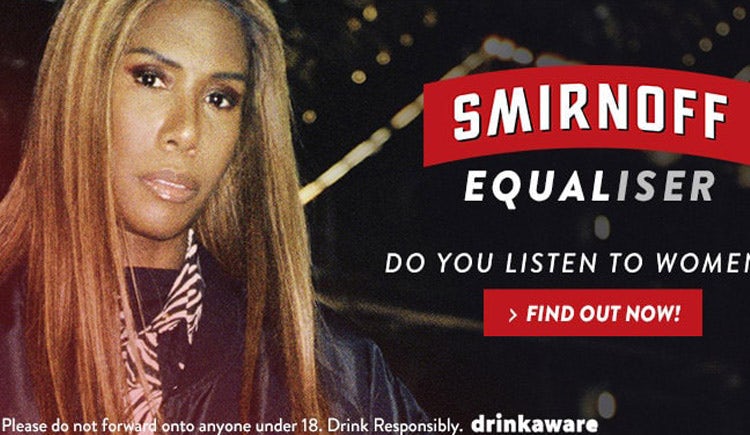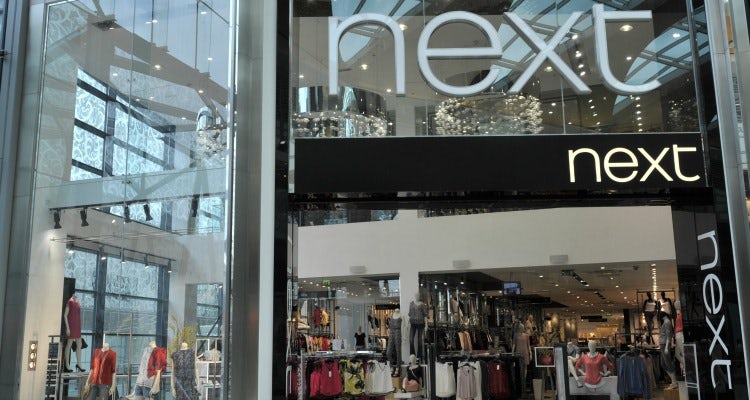Wagamama, John Lewis, Toyota: Everything that matters this morning
Good morning and welcome to Marketing Week’s round-up of the news that matters in the marketing world today.
John Lewis cuts staff bonus as profits fall
Bonuses for 84,000 staff at John Lewis and Waitrose have been cut for the fifth year in a row.
The company said employees would share a £74m bonus, equivalent to 5% of annual pay—the lowest level in 64 years.
All partners, from leading executives to shop floor assistants, receive the same percentage bonus.
John Lewis Partnership chairman Sir Charlie Mayfield said 2017 had been a “challenging year for the company.
READ MORE: John Lewis cuts staff bonus as profit falls 77%
Wagamama and Marriot Hotels top list of firms underpaying workers
Wagamama has topped a government list of companies that have failed to pay the minimum wage.
Wagamama, TGI Fridays, Marriott Hotels and Karen Millen all featured on the list of 179 employers that failed to pay a record 9,200 workers £1.1m collectively.
Wagamama failed to pay £133,212.42 to 2,630 workers the Department for Business, Energy and Industrial Strategy revealed.
As well as recovering backpay for the employees affected, the Government also fined the employers a total of £1.3m for breaking national minimum wage laws.
Business Minister Andrew Griffiths says: “There are no excuses for short-changing workers. This is an absolute red line for this Government and employers who cross it will get caught.”
Channel 4 to move hundreds of staff but keep London HQ
 Channel 4 is to move hundreds of its staff out of London and increase its investment in regional broadcasting in the biggest change in the broadcaster’s history.
Channel 4 is to move hundreds of its staff out of London and increase its investment in regional broadcasting in the biggest change in the broadcaster’s history.
The broadcaster will create a new “national HQ” along with two other “creative hubs”, which will see 300 of its 800 staff moved out of the capital. However, the broadcaster will not be forced to sell its £100m base in London.
Channel 4 is publicly owned but relies heavily on advertising. From next year, the broadcaster will begin relocating staff after finalising the new location. Next month Channel 4 will invite pitches from cities to host its new HQ.
READ MORE: Channel 4 set to move from London (£)
KFC goes back to original supplier after chicken shortage crisis

KFC has returned to its original supplier after its chicken crisis last month.
In February, the chain suffered a UK-wide distribution problem after it decided to switch its contract from Bidvest to DHL, forcing the temporary closure of hundreds of its stores.
KFC tried to offset damages to it’s reputation by taking out a full-page ad in a number of newspapers to apologise for the crisis.
But now Bidvest has signed a new agreement with KFC UK & Ireland to supply up to 350 of its 900 restaurants. “Our focus remains on ensuring our customers can enjoy our chicken without further disruption,” says a KFC spokesperson.
READ MORE: KFC in partial return to ex-supplier Bidvest
Toyota sponsors 25 Paralympic athletes for Winter Games

Toyota is supporting 25 Paralympic athletes, including six from Great Britain, at the PyeongChang Paralympic Winter Games, which begin today.
‘Team Toyota’, which includes actual Toyota employees, are competing across a range of sports including para alpine skiing, para wheelchair curling and para biathalon.
The car manufacturer provides financial and technology support to the athletes both before and during the Games.
Akio Toyoda, president and chairman of Toyota Motor Corporation says: “We are touched by athletes who keep challenging their limits. I sincerely hope that all the athletes will be able to do and perform their best, and that smiles will spread from PyeongChang to rest of the world.”
Thursday, 8 March
Next faces £30m equal pay claim
Staff at high street retailer Next are demanding for up to £30m in back pay in the first major equal pay claim against a fashion retailer.
Thousands of workers, the majority of which are female shop-floor staff, claim they are paid less than the predominantly male warehouse workforce.
Shop-floor workers say they are paid £7.50 an hour, which works out as an average of £2 an hour less than warehouse workers who they view as doing work of equal value. Warehouse staff also have access to better bonuses, according to a claim filed at the conciliation service Acas on Wednesday (7 March).
So far more than 300 workers have registered to participate in the claim but it is estimated that between 3,000 and 5,000 workers will ultimately sign up. Given the average salary loss for the group is about £6,000 it could take the claim to £30m. Next employs about 45,000 people in the UK, around 30,000 of whom are women working in its stores.
READ MORE: Next facing £30m equal pay claim from shop-floor staff
Ryanair will not ground flights post-Brexit

Ryanair will not ground flights after the UK leaves the European Union next year despite claims by Michael O’Leary that he will do so to persuade voters to “rethink” Brexit.
CMO Kenny Jacobs has said O’Leary’s comments were “misreported”.
“We’re not planning any stunts. We want both sides to do a deal and we support the British Government in doing a deal quickly so we know what’s happening. Then we can get on with making our contribution to what we think should be the replacement of open skies,” he told City AM.
“In the meantime there is still the risk that aircraft could be grounded if open skies comes to a grinding halt on a specific date because negotiations fall apart and there is then a risk that aircraft can’t fly.”
O’Leary made the comment as he wanted to make people realise they are “no longer going to have cheap holidays”. At an event it Brussels he said: “I think it’s in our interests – not for a long period of time – that the aircraft are grounded. It’s only when you get to that stage where you’re going to persuade the average British voter that you were lied to in the entire Brexit debate.”
READ MORE: Ryanair backtracks on threat to ground flights to change voters’ minds on Brexit
Alexa is laughing at owners. And Amazon doesn’t know why

Alexa has started laughing at random, which is freaking out its owners. Amazon acknowledged the problem yesterday (7 March) and said that it was “working to fix it”.
A number of people took to social media to report the problem, with one saying “Lying in bed about to fall asleep when Alexa on my Amazon Echo Dot lets out a very loud and creepy laugh… there’s a good chance I get murdered tonight”.
Amazon later said it would disable the phrase, ‘Alexa, laugh’ changing the command to ‘Alexa, can you laugh?’ as it is less likely to be misinterpreted. “We are also changing Alexa’s response from simply laughter to ‘Sure, I can laugh,’ followed by laughter,” an Amazon spokesperson said.
READ MORE: Amazon working to fix Alexa after users report random burst of ‘creepy’ laughter
New Look to shut 60 stores
New Look has become the latest casualty of the high street as the retailer confirmed it is taking the “tough but necessary” decision to close 60 stores putting 1,000 jobs at risk.
Around 10% of its 590 UK stores will be affected by the move. An additional six sublet locations will also be closed under a company voluntary agreement (CVA), which is often used by businesses to avoid going into administration.
New Look has said stores will remain open until at least 21 March and that it will try and redeploy affected staff.
Alistair McGeorge, New Look’s executive chairman, said: “Given our challenged trading performance and over-rented UK store estate, we are having to take tough but necessary actions to reduce our fixed cost base and restore long-term profitability.”
New Look is the latest victim of the tough retail environment, both Toys R Us and Maplin have recently gone into administration, while others including Mothercare have announced store closures.
READ MORE: New Look set to shut 60 stores putting close to 1,000 jobs at risk
NME closes print edition after 66 years

Iconic music magazine NME is shifting all its focus to digital after confirming it will publish its last print edition this Friday (9 March).
The magazine’s owner Time Inc blamed the tough print advertising market and increasing production costs for the decision.
NME rebranded as a free magazine in 2015 to battle falling sales, a move which Paul Cheal, Time Inc UK group managing director of music, says has helped the magazine reach a wider audience thereby increasing traffic to its website. It has also meant it could attract a “range of cover stars that the previous paid-for magazine could only have dreamed of”.
“At the same time,”he adds, “we have also faced increasing production costs and a very tough print advertising market. Unfortunately we have now reached a point where the free weekly magazine is no longer financially viable. It is in the digital space where effort and investment will focus to secure a strong future for this famous brand.”
This investment will go into a number of new digital services, including two new music channels – NME 1 and NME 2 – which will available on regional DAB, the TuneIn app and via its website. NME will also be launching a new weekly feature online called ‘The Big Read’, which will replace the weekly cover star interview.
Wednesday, 7 March
Coca-Cola makes first move into alcoholic drinks
Coca-Cola has been one of the world’s most famous soft drinks companies for almost 130 years but it is breaking with tradition by launching its first alcoholic drink. It is testing a type of alcopop, Chu-Hi, that is popular in Japan. The low-alcohol drink contains distilled shochu alcohol mixed with flavoured fizzy water.
Jorge Garduno, Coca-Cola’s Japan president, says: “This is a canned drink that includes alcohol; traditionally, it is made with a distilled beverage called shochu and sparkling water, plus some flavouring. We haven’t experimented in the low alcohol category before, but it’s an example of how we continue to explore opportunities outside our core areas.”
He adds that while it “makes sense” to give Chu-Hi a try in Japan, the experiment is unlikely to be expanded globally.
READ MORE: Coca-Cola breaks with 130-year-old tradition with first alcoholic drink
Thomas Cook invests £150m to expand own brand hotels
Thomas Cook is to set aside £150m to expand its own brand hotels as it looks to raise their profile and boost its business.
The tour operator has set up a fund, the Thomas Cook Hotel Investments fund, to do this. To start with, two of its Sunwing hotels have been added to the fund, along with a further three owned by its partner in the scheme LMEY Investments (a Swiss hotel property development company.
The plan, according to The Telegraph, is to use hotel assets as collateral to borrow more money to help fund the expansion of its own brands, which include Sunwing and Casa Cook. The move is seen as key to Thomas Cook’s business in the future because it earns higher margins from its own brands as it can keep all the profits, rather than giving some away to third parties that own the hotels.
READ MORE: Thomas Cook launching fund to ramp up own brand hotel rollout
Sainsbury’s told it must be clearer about its ‘Fairly Traded’ scheme

Sainsbury’s has been told by the ad regulator that it must ensure customers know that its ‘Fairly Traded’ scheme is different to Fairtrade in future communications.
A complaint about an ad on the supermarket’s website promoting tea questioned whether packaging that said “Sainsbury’s Fairly Traded Red Label Tea Bags” and that included a “Fairly Traded” logo in a box was “misleading” because it appeared next to other products described as “Fairtrade” and did not make it clear Fairly Traded is a separate scheme run by the supermarket.
Sainsbury’s said it did not consider the ad misleading because it did not suggest a connection to the Fairtrade scheme and used a different logo that acted as a call-to-action for consumers to find out more about its own scheme. It also pointed out that another ad on the page for Pukka tea included the logo “Fair for life, fair trade”.
However, the Advertising Standards Authority (ASA) has ruled that the Fairly Traded wording and logo are not sufficiently different for consumers to realise there is a difference between it and Fairtrade or that the two are not connected. Because of this, the ASA has concluded that the ad was misleading and should not appear in its current form again. The supermarket has also been told to ensure its ads make sufficiently clear that Fairly Traded products are part of a separate scheme in future.
On a second part of the complaint about whether Sainsbury’s Fairly Traded products “misled” consumers over the ethical standards of the product the ASA ruled that the supermarket was not in breach. The regulator says Sainsbury’s provided evidence that showed its scheme included measures that ensure a fair price is paid to producers and a minimum standard of working conditions.
“We considered that the measures around the payment of fair prices and the working conditions were likely to be consistent with consumers’ assumptions on what a ‘fairly traded’ product might be, and because we had seen evidence that the scheme had a system in place for ensuring those things, we concluded that the claim Fairly Traded was unlikely to materially mislead consumers as to the ethical standards applied to the products,” says the ASA.
Co-op to roll out mobile payments service

The Co-op is getting ready to roll out a mobile payment scheme that will allow shoppers to scan and pay for items on their smartphones without having to use a till.
A ‘shop, scan and go’ service is a joint venture with Mastercard and is aimed at shoppers who are looking for a “frictionless” buying experience, a Co-op spokesman tells the Guardian. It is currently being trialled in a store in its Manchester support centre (which isn’t open to the public) with plans for another test at head office. The service could start to roll out at soon as this summer.
Matthew Speight, the Co-op’s director of retail support, says: “It is all about consumer choices and convenience. We recognise there are many communities where customers pop in to their local Co-op and enjoy a friendly chat – it is all part of the service. Whereas for others, perhaps with a train to catch or on a school run, every second can count as consumers seek increased convenience.”
READ MORE: Co-op shoppers to avoid tills with phone app
Just Eat swings to a full-year loss and warns of plans to ramp up spending
Just Eat swung to a loss of £76m in 2017, compared to a £91m profit the year before, as it was forced to take a hit from its Australia and New Zealand businesses and warned of more competition and a need for greater investment across the company.
The takeaway delivery platform says it saw a record year, with 12.5 million customers ordering 172 million takeaways around the world. In the UK alone, 500,000 people ordered takeaways on the night of the X Factor final in December.
And group revenues were up 45% to £546m. However, the company has warned it needs to ramp up spending in the face of growing competition, with companies including Uber and Amazon moving into the food delivery sector.
Tuesday, 6 March
YouTube awarded brand safety certificate
YouTube has been awarded a brand safety certificate after an independent audit and despite ongoing concerns about ads appearing in unsafe environments on the platform.
JICWEBS, the independent UK body that sets the best practice and standards for trusted online ad trading, awarded the certificate, saying YouTube had met the Good Practice Principles which are created by the Digital Trading Standards Group (DTSG).
The guidelines aim to reduce the risk of ads being placed next to inappropriate content.
“Providing more transparency and visibility to our advertising partners remains important to us, so we are pleased YouTube has achieved certification for brand safety by JICWEBS. We remain committed to listening and working with the industry on cross-industry standards for digital advertising,” says Ronan Harris, marketing director at Google UK and Ireland.
Coca-Cola to halt factory visits for school students

Coca-Cola plans to stop factory visits by schoolchildren as the brand rethinks how it wants to engage with young people amid the ongoing childhood obesity crisis.
Over the last 10 years, the drinks giant has hosted thousands of school children and university students, around 15,000 each year.
As part of the move Coca-Cola will also axe its Real Business Challenge, a scheme designed to help secondary school students develop team work and problem solving skills. So far, almost 40,000 students had taken part.
The company claims the decision was not made due to external pressure relating to the business or product.
“We remain absolutely committed to addressing the barriers that prevent young people from entering the workplace, and we are currently reviewing how we can continue our work with young people in ways that best support their needs in the communities in which we operate,” a company spokesperson told The Independent.
READ MORE: Coca-Cola stops factory trips for schoolchildren amid obesity crisis
TV ad revenue drops for first time in 7 years
TV advertising revenue has declined, following seven years of growth, likely due to the ongoing economic and political uncertainty, including a weakened pound and inflationary pressure leading some advertisers to reduce investment.
The UK’s TV ad revenue totalled £5.11bn in 2017, down 3.2% year on year, according to figures obtained by Thinkbox.
However, FMCG spend on TV advertising in the fourth quarter of 2017 grew by 8% compared to 2016. And analysts predict TV advertising in the UK will return to annual growth in 2018, forecasting a 1.5% increase in total investment.
Online businesses remain the biggest advertisers on TV (£682m), followed by food(£559m) and cosmetics/personal care (£431m).
Thinkbox’s figures represent all money invested by advertisers in commercial TV across all formats and on any screen including linear spot and sponsorship, product placement, broadcaster VoD, addressable and interactive.
Trinity Mirror to rebrand as Reach

Trinity Mirror, publisher of the Daily Mirror, will change its corporate name to ‘Reach’ following its £126.7m acquisition of Richard Desmond-own titles such as the Express and Daily Star.
The company has been forced to shrug off reports that it’s struggling after recording a 12.6% drop in group revenues to £623m last year. Revenue from print publishing also fell by 11.3% while print advertising revenues declined by almost 25%.
According to reports Trinity Mirror blamed a “weak printing environment” for the fall with its chief executive Simon Fox saying the group has managed a strong performance “in what remains a difficult trading environment for the industry”.
“Our reach extends across multiple platforms in both print and digital and across the cities and communities that we serve. We think this is a name which better reflects what we do and what our ambitions are,” he says.
READ MORE: Trinity Mirror changes name to Reach after express deal
Dating app Bumble gathers 5,000 moderators to remove gun photos
Popular dating app Bumble is among dozens of companies joining the fight against gun violence following the recent mass school shooting in Florida.
As part of the move the company, which has employed 5,000 content moderators, will immediately remove all profile pictures with visible guns and other deadly weapons including knives.
Bumble founder Whitney Wolfe Herd says the move isn’t necessarily designed to take a stance against gun owners but merely to stop people trying to normalise violence on the platform.
However, Bumble won’t censor photos from a users Instagram account, which can be optionally shown on a user’s Bumble profile.
Bumble’s new move is expected to be met with significant backlash.
READ MORE: Bumble dating app bans gun images after mass shootings
Monday, 5 March
UK high street set to suffer from cold weather
The 0.4% GDP growth forecast for the first three months of 2018 could reduce by as much as 0.2%, economists have warned, as the UK economy takes a “significant hit” as a result of the recent icy weather.
Retail is one of the sectors expected to be hit hardest, with one analyst saying the big freeze could be a “disaster” for the high street as many people decide to stay in and shop online instead.
“Anything that takes footfall away from shops reduces spend, and pushes spend towards the internet,” Retail Remedy’s Phil Dorrell said.
“In the short term, it’s very much a disaster. If you go down to the nearest road you will see that traffic is significantly less than it was previously, so most parts of retail will be hurting at this point.”
READ MORE: Economy faces short-term hit from big freeze
Stellar year for UK’s largest online retailers
Britain’s largest online retailers reported sales of £8.4bn in the 12 months to August 2017 – up 23% year-on-year – thanks to the increasing use of mobile phones to shop online.
According to research from law firm RPC, Marks & Spencer’s online sales grew 6% between April 2016 and March 2017 – significantly more than the 1% of sales reported by physical high street stores.
RPC says as online-only sales continue to grow strongly, there could be a wave of consolidation among e-retailers – and some of the larger players will likely be keeping an eye out for fast-growing platforms they can “bolt-on” to rapidly grow their customer bases or help them to enter new markets.
READ MORE: UK’s largest online retailers record 23% jump in sales
Amazon eyes French grocery market

Amazon is looking to launch its grocery delivery service in France, further fuelling speculation that the e-commerce giant has its eye on expanding into the European food and supermarket sector.
In an interview, Amazon’s general manager for France, Frederic Duval, said food is a “strong development axis” for the business since the launch of Amazon Fresh in the US in September 2016 – and that its purchase of Whole Foods last year marked a step in that ambition.
“We would very much like to launch this service in France, but everything in its own time,” Duval added. “A launch represents an investment.”
READ MORE: Amazon has French grocery market in its sights, French boss tells paper
Smirnoff and Spotify team up to get people listening to more female artists

Diageo’s Smirnoff and Spotify have joined forces to drive awareness of gender bias in music and increase the representation of female artists by allowing consumers to impact their own listening habits.
The Smirnoff Equalizer gives Spotify users a percentage breakdown of the number of male and female artists they have listened to over the last six months – before providing an equalised playlist where both male and female artists are represented equally.
It is the latest initiative from the drinks brand’s ‘Equalizing Music’ campaign, which hopes to double the number of female festival headliners by 2020.
READ MORE: Smirnoff and Spotify team up to promote equality for women musicians around the world
Levi’s to use ethical lasers on its jeans
Levi’s is set to start using lasers to ethically create designs on its jeans in a drive to cut out harmful chemicals and reduce manual labour.
Dubbed Project X, the digitising technique will reduce the number of labour-intensive steps in producing jean finishes from between 18 and 24 to just three.
Levi’s has pledged to achieve a “zero discharge of hazardous chemicals” by 2020, with the laser technology expected to reduce the number of chemicals used from thousands to a few dozen.
“Our first step in the new process is to photograph the jean, and then we take that and illustrate it in a way that the laser can interpret,” Levi’s VP in technical innovation explains.
“So what used to happen traditionally 8, 10, 12 minutes with manual applications, we can now execute with the laser in 90 seconds or so.”
READ MORE: Levi’s will use lasers to ethically create the finishes on all of its jeans










